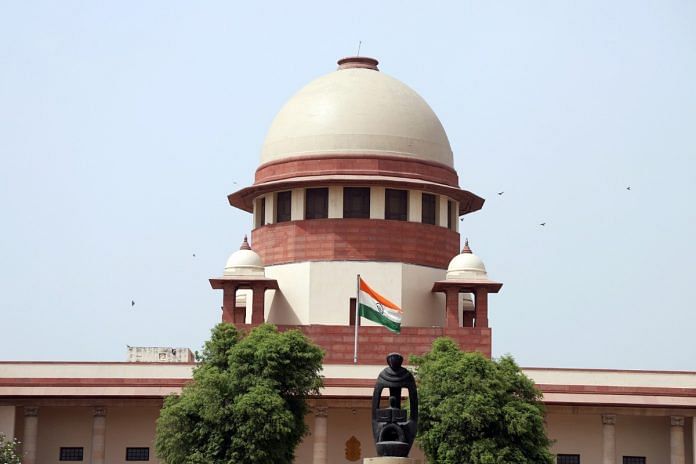New Delhi: Amid frequent friction between the government and the judiciary over the appointment of judges and other issues, members of a parliamentary panel Thursday called for doing away with long vacations in the Supreme Court (SC) and the high courts (HCs). The members also sought mandatory declaration of assets by the judges on the lines of officers of All India Services, ThePrint has learnt.
Several MPs in the standing committee on personnel, public grievances, law and justice — headed by BJP Rajya Sabha MP Sushil Kumar Modi — were of the view that the long summer and winter vacations in the SC and HCs impede the speedy disposal of cases that have piled up. Meanwhile, members cutting across party lines were unanimous on the matter of mandatory declaration of assets by judges of the higher judiciary.
The issue came up during a meeting of the standing committee that was called Thursday to hear the views of the secretary, Department of Justice, S.K.G. Rahate, on “judicial processes and their reforms”.
“Many MPs, including the Congress’ Vivek Tankha, a lawyer himself, were of the view that the winter break and summer vacations are a ‘çolonial concept’ and should be done away with,” one of the MPs, who did not want to be named, told ThePrint. “They said that, like other government services, judges can take leave when they require instead of the current practice of courts going on long vacations.”
The annual summer vacation of the SC starts in mid-May and lasts until June-end, and the winter break for two weeks starts in December-end. Besides, the apex court closes for a week each during Dussehra and Diwali.
Another MP said that it’s the common man who suffers because of the long vacation. “There is already a humongous delay in disposal of cases. The vacations further add to the delay,” the MP added.
However, the courts do hear matters during vacations. Vacation benches comprising a few judges are available for hearing urgent cases that cannot wait.
Also Read: Central ministries biggest litigants in govt with 2.85 lakh pending cases, finance tops list
Govt vs judiciary
The practice of long vacations in the higher judiciary has come under flak from the government.
Last December, Union law minister Kiren Rijiju had told the Rajya Sabha that “there is a feeling among the people of India that the long vacation which the courts obtain is not very convenient for justice seekers”, and that it was his obligation and duty to convey the message or sense of the House to the judiciary.
Justice Secretary S.K.G. Rahate Thursday informed the committee members that it’s not for the government to decide on this matter, but they will forward the standing committee’s recommendation — as and when they submit their report — to the chief justices of the Supreme Court and the high courts for consideration.
Also Read: After elevation of 2 HC judges, SC collegium yet to act on its call to transfer them, say officials
‘Mandatory declaration of assets by the judges’
The suggestion for mandatory declaration of assets by judges of higher judiciary is meant to ensure “transparency in the system”, said a fourth MP who attended the meeting.
“If it is mandatory for officers of All India Services to declare their assets annually, it should also apply to the higher judiciary,” the MP added.
It is mandatory for civil servants to declare their assets under the All India Services (Conduct) Rules, 1968. Declaration of assets has also been made mandatory for all election candidates by the Election Commission of India.
The Department of Justice informed the committee that, under the SC Judges (Salaries and Conditions of Services) Act, 1958, and the High Court Judges (Salaries and Conditions of Services) Act, 1954, there is no provision for judges of the Supreme Court and high courts to declare their assets.
The department had prepared the Judicial Standards and Accountability Bill, which had a provision for declaration of assets and liabilities of judges, but the bill lapsed following the dissolution of 15th Lok Sabha.
In the past, several former judges have batted for mandatory declaration of assets by judges of higher judiciary. Noted legal luminary and former SC judge Justice V.R. Krishnan Aiyer had in 2010 said it is necessary for the judges to make their assets public to ensure transparency in their conduct and public life.
(Edited by Richa Mishra)



